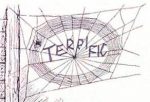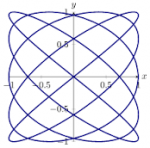|
|

The slow and steady march toward a more and more precise definition of what we mean by information inevitably begins with Claude Shannon. In 1948 Shannon published The Mathematical Theory of Communication in Bell Labs’ technical journal. Shannon found that transmitted messages could be encoded with just two bursts of voltage – an on burst […]
The Riemann Hypothesis came to my attention again recently. More specifically I read a bit about the possibility that quantum mechanical measurements may provide a proof of a centuries-old hypothesis and one of mathematics’ most famous enigmas.
Within mathematics itself, without any reference to its physical meaning, the Riemann Hypothesis highlights the kind of […]
The idea that geometry in Gothic architecture was used to structure ideas, rather than the edifice itself, has come up before here at Mathematics Rising. But I would like to focus a bit more on this today because it illustrates something about mathematics, and mathematics’ potential, that the modern proliferation of information may be obscuring. […]
Not too long ago I wrote about entropy, and what has come to be known as Maxwell’s demon – a hypothetical creature, invented in 1871 by James Clark Maxwell. The creature was the product of a thought experiment meant to explore the possibility of violating the second law of thermodynamics using information to impede entropy […]
I could go on for quite some time about the difference between dreaming and being awake. I could see myself picking carefully through every thought I have ever had about the significance of dreams, and I know I would end up with a proliferation of questions, rather than a clarification of anything. But I think […]

Roger Antonsen came to my attention with a TED talk recorded in 2015 that was posted in November. Characterized by the statement, “Math is the hidden secret to understanding the world,” it piqued my curiosity. Antonsen is an associate professor in the Department of Informatics at the University of Oslo. Informatics has been […]
An article published in May in Quanta Magazine had the following remark as its lead:
A surprising new proof is helping to connect the mathematics of infinity to the physical world.
My first thought was that the mathematics of infinity is already connected to the physical world. But Natalie Wolchover’s opening few paragraphs were inviting:
[…]
Random is often the word chosen to describe something that has no order. But randomness has become an increasingly useful tool in mathematics, a discipline whose meaningfulness relies, primarily, on order.
In statistics, randomness as a measure of uncertainty, makes possible the identification of events, whether sociopolitical or physical, with the use of probability distributions. […]
First, I would like to apologize for posting so infrequently these past few months. I have been working hard to flesh out a book proposal closely related to the perspective of this blog, and I will be focused on this project for a bit longer.
However, a TED talk filmed in Paris in May came […]
In 2011 John Horgan posted a piece on his blog, Cross Check (part of the Scientific American blog network), with the title, Why Information can’t be the basis of reality. There Horgan makes the observation that the “everything-is-information meme violates common sense.” As of last December (at least) he hadn’t changed his mind. He referred […]
|
|




Recent Comments